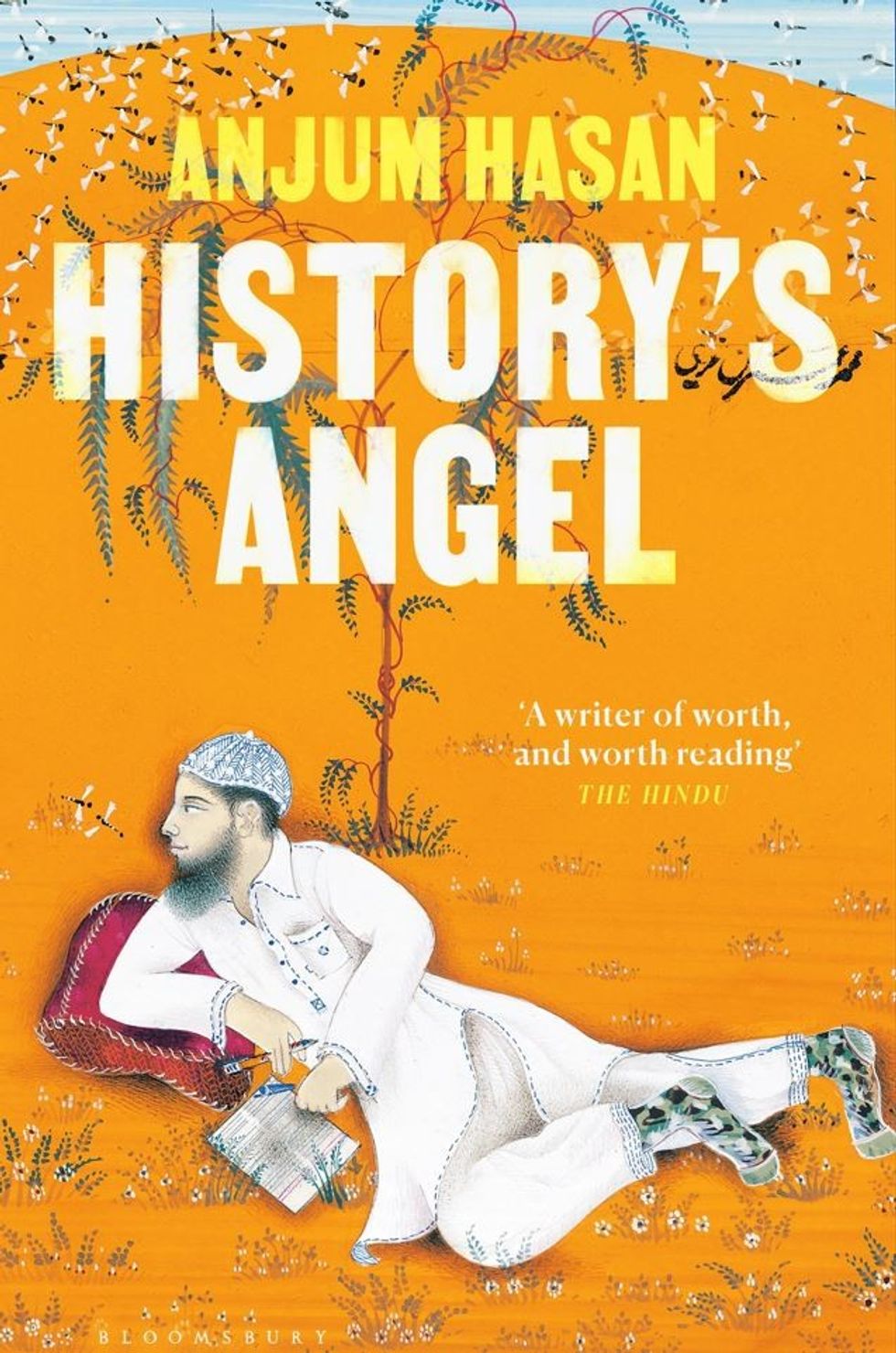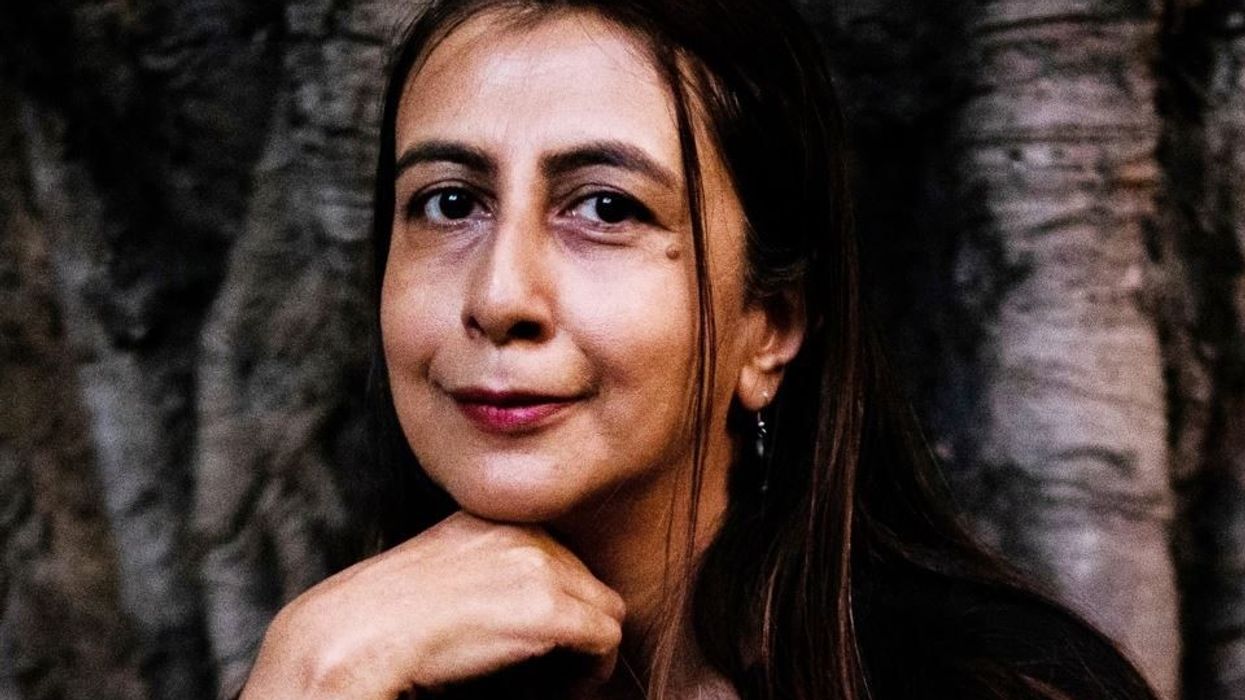DEBATES, films, and drama serials set in the past, divisions triggered by different views of shared history, many books and more, show just how much of a hot topic history has become.
That has made the newly published book History’s Angel very timely and a clever new take on the popular subject. The new novel from Anjum Hasan revolves around a Muslim mild-mannered history teacher living in contemporary Delhi, at a time of religious division. He has to navigate family challenges with colleagues being suspicious of a Muslim teaching India’s history and an unthinkable chain of events plunging his life into chaos.
Eastern Eye caught up with the author of three novels and two short story collections to discuss her new book, which explores the life of Muslims in India, family and shared history.
What first connected you to writing?
It seems to have been a pre-conscious connection, but a few things helped to strengthen it – teachers for whom the English language was sacrosanct, a father in love with English literature, and my own inherent sense of escapism. Also, I didn’t have parents particularly ambitious for their children. So writing was less aspiration and more a state of being.
What inspired your new novel?
I wanted to write a novel about a teacher of history at a time in India when history is the subject of daily war. The scholarly discipline still retains its independence but in a colloquial sense history is now a clash between those supporting different mythologies. I wanted to write a comic novel about this, and ask the question: When is this fight just a debate on TV and when does it have its fingers on your throat?
Tell us a little about the story?
Alif is a middle-aged teacher in Delhi and the story follows him trying to keep things together – his job is on the line because he flies off the handle with a child, an old flame has suddenly resurfaced, his wife is very dissatisfied with their unhip standard of living, and his son is fed up of school.
How does this compare to other works you have done?
I have often written about people somewhat at odds with their worlds, not subscribing to radical politics but more like low-key liberals feeling out of place in the bright lights of new India and trying to articulate that befuddlement. Also, in this novel, that sense of displacement is sharpened to the point where it becomes a question of survival.

What do you think is the biggest challenge you faced as an author writing this novel?
Finding a language to write about politics and history that is not the language of politics and history but one that takes in the everyday: the feel of a new pair of shoes, mixed feelings towards family and friends, the sights on a Delhi street.
Who are you hoping connects with this story?
Anybody who wants good fiction. I know that taste has become more rarefied and segregated, but I still believe that we don’t know what we like till we have read it.
What is your own favourite passage or moment in the book?
I like one of the early sections where Alif takes his students to see Humayun’s Tomb in Delhi and one of the boys goes missing. The contrast is between the grandeur of that historical monument and how a sudden intrusion from life can render it just a pile of stones.
What inspired the interesting title?
It’s from an image that appears in a famous essay by Walter Benjamin. The angel of history has his face turned longingly towards the past, but the storm of progress is blowing him towards the future.
What according to you makes for a great story?
A raconteur could tell a great story but in a novel the reader is usually looking for more – an absorbing plot, yes, but also a feeling of life refracted on the page.
Do you ever base any of your characters on real people?
Rarely. But I find that with each successive novel I am also moving further away from the familiar and so Alif and the other characters in History’s Angel are least like me in any obvious sense. At the same time, one knows what Flaubert meant when he said about his heroine, ‘I am Madame Bovary’.
What do you enjoy reading and do you have a favourite book?
I read and enjoy a lot of new fiction from India and elsewhere. But my favourite books tend to be the old ones. I was just cleaning my cupboard and came across a yellowed copy of Saul Bellow’s Henderson, The Rain King which is a perennial favourite of mine.
What can we expect next from you?
I am writing a book on Shillong, the town I grew up in, a sort of high-life and low-life portrait of a place that has been fascinatingly modern and is now increasingly provincial.
What inspires you?
The regular appearance of thoughtful, even powerful writing. Just now I am completely taken with Sara Rai’s Raw Umber, Yiyun Li’s The Book of Goose, and Irwin Allan Sealy’s Asoca.
Why should we pick up your new novel?
Because it’s trying to find a new, hopefully funny, way, to talk about an increasingly jaded Hindu-Muslim divide.
History’s Angel is published by Bloomsbury and available now in hardback. www.anjumhasan.com




